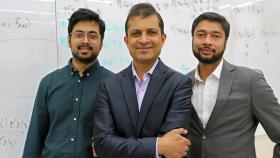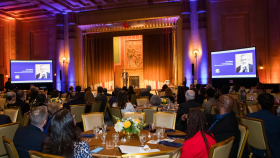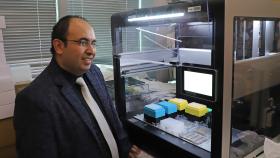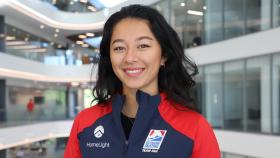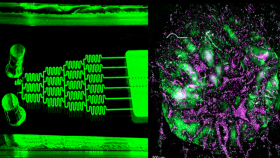When faculty members in the Wallace H. Coulter Department of Biomedical Engineering gathered to talk about student experiences of racism and exclusion in December, the stories they heard were moving — and a call to action.
The Department’s Community, Diversity, and Inclusion Committee had collected experiences from students that served as the starting point for a thoughtful discussion — and the realization among the group that they needed more tools to intervene and address situations where students feel marginalized or excluded.
A series of workshops starting this spring is one of the ways professors, instructors, and department leaders are learning those skills. Facilitated by Dan Morrison, an expert in anti-racist education who specializes in diversity and inclusion in academia, the program will gather small groups of faculty members for six weeks of training and conversations. The goal is to equip them with knowledge and skills to help make the Coulter Department a more inclusive space.
“The stories were powerful and generated good discussion amongst faculty about the experiences that students have that we are unaware of — and our roles and responsibilities when these types of things happen,” said Todd Fernandez, a member of the Community, Diversity, and Inclusion Committee and a lecturer in the Department. “After the sessions, the faculty expressed a need for further education on strategies to help prevent or address the experiences in the students’ stories we heard.”
At the December event, faculty members heard a variety of troubling stories from across campus. One student described being accused of breaking lab equipment because of the language they spoke. Another described how a student group used an offensive team name for a class project, leaving them feeling minimized. The aim of the workshop series — which will stretch into the summer — is to help faculty members interrupt these kinds of microaggressions and exclusionary behaviors.
“The benefit of the training is really twofold,” Fernandez said. “One, it provides space for faculty to reflect on how we make sense of the world and how we build relationships with those who have different backgrounds than we do. And, two, it gives participants specific strategies and increased confidence in having difficult discussions related to race, racism, and anti-racism.”
As racial justice protests ignited conversations around the country last year, the Department developed an explicit commitment to diversity and inclusion to clearly state where we stand — and our expectations for members of our community:
The Wallace H. Coulter Department of Biomedical Engineering at Emory University and Georgia Tech is a diverse and international community of faculty, students, and staff who promote equity, diversity, and inclusion on our campuses. We believe that the diversity and contributions from all of our members are essential and make us who we are. We strive to create and maintain a welcoming and inclusive educational and work environment that values and respects our individual and communal differences. We believe that our impact must reach beyond the classroom, research labs, our campuses, and the technology we create in order to improve the human condition where injustice lives. We believe that Black Lives Matter and therefore stand committed in the fight against racism, discrimination, racial bias, and racial injustice.
Ultimately, the faculty workshop series is another step toward reinforcing those ideals by offering the people leading classes, labs, and the Department practice with specific strategies they can use.
“We are committed to doing the work necessary to build a more equitable and inclusive community,” said Susan Margulies, the Wallace H. Coulter Chair of the Department. “As a start, we need to build our skills so that we can take concrete actions to live our values. The discussions and practice through these workshops will help us to better understand and grow — and to make our Department and our campuses places where our students and colleagues thrive.”
Media Contact
Communications Manager
Wallace H. Department of Biomedical Engineering
Keywords
Latest BME News
Researchers demonstrate stem cell treatment without chemotherapy and painful bone marrow procedure
BME researchers explore the critical role of mechanical force in rare genetic disorder
Researchers develop spatial transcriptomics toolkit that provides new insights into the molecular processes of life
Air Detectives take top prize to give department three straight victories in Expo competition
Coulter BME community gathers at the Fabulous Fox to celebrate anniversary of unique public-private partnership
Coskun pioneering new research area and building a company around iseqPLA technology
BME undergraduate student and competitive skater Sierra Venetta has found success on and off the ice
BME researcher Ankur Singh using new technology to uncover weakened response in cancer patients




